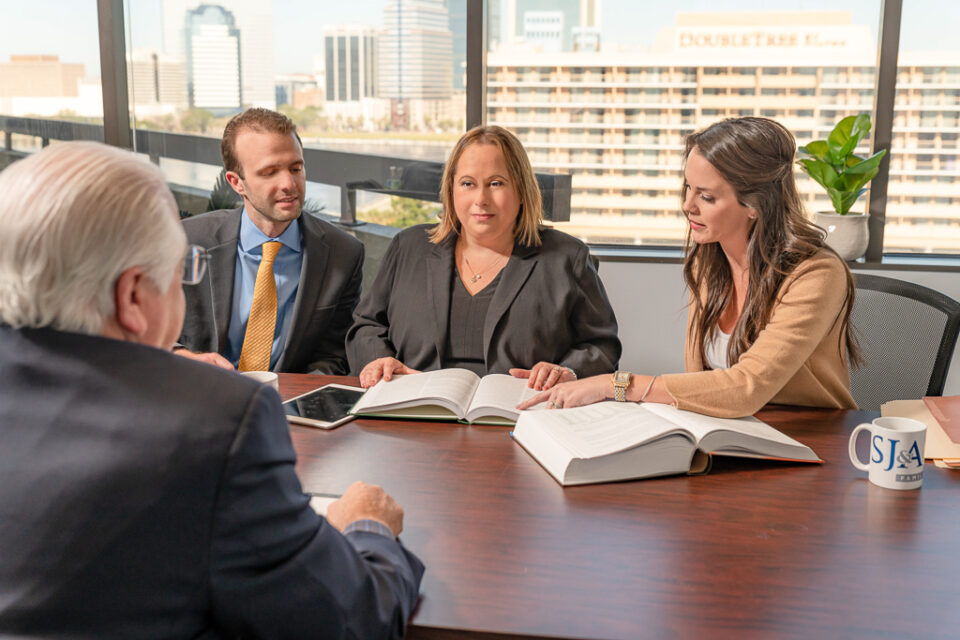Exploring legal issues without stepping into a courtroom can save time, cash, and profound energy. However, practicing your legal rights outside the court of law requires cautious preparation, knowledge, and technique. From understanding the law to picking the right legal representation, there are key variables to consider.
In this article, we explore these considerations and how the best appellate attorneys can help you in using wise judgment.
Understanding the Scope of Your Legal Rights
Before making a move, you should initially have an unmistakable understanding of your legal rights. These rights rely upon the specifics of your circumstance and may include regions, for example, property disputes, employment concerns, contractual commitments, or licensed innovation issues.
- Research the Applicable Laws: Begin by getting to know the laws and guidelines relevant to your case. While online resources can be helpful, consulting with legal professionals ensures you get exact and state-of-the-art data.
- Identify the Desired Outcome: Clearly characterize your objectives. Is it true that you are searching for pay, a resolution to a contention, or acknowledgment of a complaint? Knowing your goals will guide your methodology.
Consider Alternative Dispute Resolution (ADR) Methods
Settling disputes without litigation is frequently quicker and less antagonistic. There are a few methods to consider:
- Negotiation: This includes direct correspondence between parties to reach a commonly OK understanding. Be prepared with evidence, documents, and an unmistakable understanding of your situation to fortify your arranging power.
- Mediation: In intercession, a neutral outsider helps work with conversations and resolve clashes. This approach can safeguard connections and lessen the close to home cost of legal disputes.
- Arbitration: Like court proceedings, arbitration includes presenting your case to a limiting or non-binding referee or non-restricting decision. It’s less formal and normally quicker than conventional litigation.
- The best appellate attorneys can give expert advice on which ADR technique suits what is going on and address your interests in negotiations or arbitration.
Document Everything
Appropriate documentation is crucial when declaring your rights outside the court. All around maintained records reinforce your situation and put forward your cases more powerful.
- Keep Written Records: Document all interchanges, arrangements, and actions connected with the dispute. Messages, instant messages, and formal letters can act as evidence.
- Collect Supporting Evidence: This might incorporate contracts, receipts, photos, witness proclamations, and expert sentiments.
- Organize Files: Having your documents promptly accessible and efficient ensures you can answer immediately and effectively to any developments.
Look for Expert Legal Advice
While practicing your legal rights outside the courtroom might appear to be clear, the direction of experienced legal professionals can have a significant effect. Regardless of whether you choose not to contest, lawyers play a critical role in ensuring that your rights are protected.
- Hire the Right Attorney: Search for lawyers with expertise in your specific area of concern. For instance, if your issue includes appealing a past decision, the Florida appellate attorneys are important for analyzing the strength of your case and giving strategic counsel.
- Consult Early: Captivating a lawyer early in the process can forestall expensive confuses and set the stage with a successful resolution.
- Review Contracts: Legal professionals can help you draft or review arrangements to stay away from future disputes.
Maintain Professionalism and Patience
When practicing your legal rights outside of court, maintaining a quiet and professional disposition is basic. Close to home explosions or hurried decisions can subvert your situation.
- Communicate Effectively: Be clear, brief, and conscious in all interactions with the opposing party or their agents.
- Be Patient: Dispute resolution can be time-consuming, particularly if negotiations are involved. Surging the process might bring about negative outcomes.
- Focus on the Big Picture: Try not to become focused on minor issues that don’t impact your definitive objectives.
When to Consider Court Action
While settling disputes outside the court is in many cases best, certain situations might require litigation:
- Uncooperative Opposing Parties: If the other party will not arrange or intervene sincerely, court intercession might be important.
- Legal Deadlines: Legal time limits can compel you to start legal proceedings if an understanding isn’t reached in time.
- Complex Legal Issues: A few disputes include unpredictable legal inquiries best settled by a judge.
In these situations, hiring in the Jacksonville best appellate attorneys ensures that your case is presented effectively in court, if essential.
Final Word: Choose the Right Legal Help
Practicing your legal rights outside the court of law requires a careful understanding of the law, strategic preparation, and professional direction. From negotiation and intercession to arbitration, exploring alternative dispute resolution methods can save significant resources while accomplishing good outcomes. Legitimate documentation, expert legal advice, and patience are basic parts of a successful methodology.
For those seeking expert assistance in protecting and declaring their rights, Brownstone Appeal Lawyers stand apart as a trusted decision. With their team of the best appellate attorneys, they carry insight and dedication to exploring complex legal issues, ensuring that your interests are safeguarded at each stage. Whether inside or outside the courtroom, their expertise can have a significant effect in accomplishing the resolution you merit.

